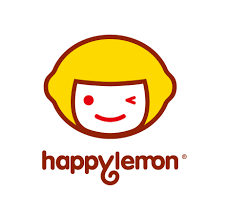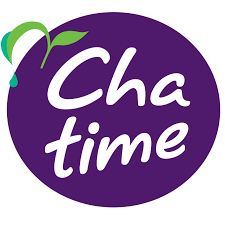Happy Lemon Franchise in 2025: Costs, Fee & FDD
Ready to explore a Happy Lemon franchise? Discover the costs, potential earnings, and market appeal of this globally popular tea brand. See if this dynamic investment opportunity is right for you!

Table of Contents:
Happy Lemon is a world-renowned beverage franchise that started in 2006 under the Yummy-Town Group, a prominent tea culture company from Taiwan. Founded by a group of passionate tea enthusiasts, Happy Lemon quickly became a key player in expanding tea culture beyond Taiwan, particularly in Mainland China and Hong Kong. Its innovative approach and commitment to quality have made it one of the most respected tea brands globally. The brand’s unique positioning and playful yet sophisticated identity appeal to a wide range of customers, from tea lovers to those looking for a refreshing and trendy beverage option.
At its core, Happy Lemon is all about high-quality, freshly brewed tea, often infused with playful twists like salted cheese foam, a signature offering that sets it apart from competitors. The menu features a variety of beverages, including bubble tea, milk tea, fruit tea, smoothies, and more. Ancillary products like snacks and desserts add to the appeal, making it a versatile stop for a quick refreshment or a casual treat. Happy Lemon’s core market includes millennials, Gen Z, and young professionals who are drawn to both the unique flavors and the brand’s vibrant, Instagram-worthy aesthetics.
As of 2024, Happy Lemon boasts an impressive global footprint with over 350 locations across 21 countries, including major markets like the USA, Canada, Australia, the UK, South Korea, Japan, and the Philippines. Its broad international presence is a testament to the brand’s universal appeal and consistent quality. With thousands of customers served daily across its stores, Happy Lemon continues to expand its reach and influence within the rapidly growing global tea market.
For franchisees, Happy Lemon offers a robust support system that includes comprehensive training programs, marketing assistance, and ongoing operational support. New franchisees benefit from a structured onboarding process that covers everything from product preparation to customer service. Additionally, the brand’s emphasis on innovation ensures that franchisees are always ahead of trends, making it a dynamic and rewarding investment opportunity.
Happy Lemon Franchise Insights
- Happy Lemon is a pioneer in the global tea market, being the first to introduce the unique salted cheese tea, which has become a viral sensation and a key differentiator.
- The franchise has over 350 locations across 21 countries, showcasing its strong global presence and ability to adapt to diverse markets.
- With its focus on innovation, Happy Lemon frequently updates its menu, introducing new flavors and combinations that keep customers coming back, contributing to its growing fan base.
- Happy Lemon experienced a remarkable 17% unit growth in the U.S., significantly outpacing the industry median of 0%, highlighting its strong brand appeal and successful expansion strategy in a highly competitive market.
Happy Lemon Franchise Key indicators
Growth YOY (%)
17%
vs industry 0%
Total U.S. Franchised Units
106
3-Year Failure Rate
13%
vs industry 10%
How much does it cost to open a Happy Lemon franchise?
Understanding the potential investment size and capital requirements is crucial when considering opening a Happy Lemon franchise. These financial commitments, including initial franchise fees, equipment costs, and ongoing operational expenses, impact the feasibility and profitability of the venture. Thoroughly evaluating these factors ensures that potential franchisees are prepared for the financial responsibilities and can make informed decisions about their ability to sustain and grow the business, ultimately contributing to long-term success.
Min & Max Investment
Opening a Happy Lemon franchise involves several key costs, which are outlined in Item 7 of the Franchise Disclosure Document (FDD). You can see a breakdown of the costs to open a Happy Lemon below from the most recent Item 7 below:
| Type of Expenditure | Minimum Investment | Maximum Investment |
|---|---|---|
| Initial Franchise Fee | $30,000 | $30,000 |
| Technology Set-Up Fee | $20,000 | $20,000 |
| Store Pre-Opening Fee | $30,000 | $30,000 |
| Initial Training Expenses for Personnel | $12,000 | $16,000 |
| Rent & Deposit | $4,000 | $10,000 |
| Architects Fees, Construction, and Improvements. Fixtures and Furniture | $100,000 | $250,000 |
| Equipment | $40,000 | $65,000 |
| Opening Inventory and Supplies | $15,000 | $45,000 |
| Insurance (Annual Premium) | $8,000 | $12,000 |
| Security and Utility Deposits | $10,000 | $15,000 |
| Legal, Accounting Costs | $5,000 | $7,500 |
| Computers, Point of Sale System | $4,000 | $6,000 |
| Additional Funds for 3 months | $20,000 | $80,000 |
| Total | $298,000 | $586,500 |
Item 7 in the Franchise Disclosure Document (FDD) is the “Estimated Initial Investment” section. It outlines the total costs a franchisee can expect to incur when starting a franchise, including the initial franchise fee, equipment, inventory, real estate, and other startup expenses. This section is crucial because it provides potential franchisees with a detailed understanding of the financial commitment required, helping them assess affordability and plan their investment strategy effectively.
Required Capital
To open a Happy Lemon franchise or a similar tea and beverage franchise, you’ll need to prepare for several financial requirements. While the specific figures for Happy Lemon may vary slightly, the following estimates should give you a solid idea of what’s generally required in this industry:
- Required Capital Expect to invest between $298,000 and $587,000 in total. This covers everything from leasehold improvements, equipment, signage, and initial inventory to working capital for the first few months of operation. Assuming that you will finance your franchise investment, you should plan to have 20% of the total investment amount in the form of equity (cash) for the investment.
- Liquid Assets Requirement Typically, franchises like Happy Lemon require liquid assets of around $100,000 to $150,000. This ensures you have enough cash on hand to cover initial expenses and any unforeseen costs that may arise before the business becomes profitable.
- Net Worth Requirement A net worth of $500,000 or more is often required for beverage franchises. This reflects your overall financial health and indicates to the franchisor that you have the financial stability to support the business long-term.
How much does a Happy Lemon franchise owner make?
Calculating the salary of a Happy Lemon franchise owner involves analyzing gross sales to determine total revenue, assessing operational efficiency to understand profit margins, and accounting for franchisor fees and additional expenses such as rent, utilities, and payroll. Effective management of these factors can significantly impact the profitability and financial success of a Happy Lemon franchise owner. This comprehensive financial analysis helps estimate net profits, from which the owner’s salary can be derived. A clear understanding of these factors ensures accurate salary projections and financial planning for sustainable business operations.
Happy Lemon Revenue & Gross Sales
Unfortunately, specific median gross sales figures for Happy Lemon aren’t publicly available. However, beverage franchises like Happy Lemon tend to perform well in high-traffic areas, particularly in urban centers and locations near colleges, where demand for trendy and unique drinks is strong. The franchise’s emphasis on innovation, quality, and social media-friendly products often leads to solid sales performance, especially in markets with a younger demographic.
While exact numbers can vary based on location and market conditions, successful franchises in this industry typically experience steady foot traffic and consistent repeat customers, which contribute to overall strong sales performance.
Which key factors impact the average revenue performance of Happy Lemon franchisees?
The performance of U.S. Happy Lemon franchisee median gross sales is likely influenced by several key factors. First, the brand’s unique product offerings, like the popular salted cheese tea, attract a dedicated customer base, particularly among younger demographics who value novelty and quality. Strategic locations in high-traffic areas, such as malls, urban centers, and near universities, also play a significant role in driving consistent foot traffic. Additionally, Happy Lemon’s strong social media presence and trendy branding resonate well with tech-savvy consumers, helping to maintain visibility and attract new customers. Lastly, the franchise’s robust support system and focus on operational efficiency likely contribute to steady sales performance across its U.S. locations.
Happy Lemon Franchise Operational Costs
When considering opening a Happy Lemon franchise, it’s essential to be aware of the primary ongoing operational costs beyond the general franchise fees. These costs can significantly impact your profitability and should be carefully planned for in your budget.
- Lease/Rent Depending on your location, rent can be a substantial ongoing expense. High-traffic areas often come with higher lease costs, but they can also drive more business.
- Employee Wages Labor costs, including wages, benefits, and payroll taxes, are a significant ongoing expense. Managing staffing efficiently while maintaining high service standards is crucial.
- Inventory and Supplies Regularly replenishing tea, milk, fruits, and other ingredients, as well as packaging supplies, is necessary to keep your business running smoothly.
- Utilities Costs for electricity, water, and gas are ongoing and can fluctuate depending on the size of your store and local utility rates.
- Maintenance and Repairs Routine maintenance of equipment and the store itself, as well as occasional repairs, are necessary to keep operations running smoothly and to avoid disruptions.
Planning for these key operational costs will help ensure your Happy Lemon franchise remains financially healthy and able to thrive in the competitive beverage market.
Happy Lemon Franchise Fees
When opening a Happy Lemon franchise, it’s important to understand the ongoing fees that you’ll be responsible for. These fees are crucial to maintaining the support, marketing, and operational assistance you’ll receive from the franchisor, which in turn helps drive the success of your business. Below is a breakdown of the primary fees you should plan for:
- Royalty Fee You’ll be required to pay a royalty fee of 7% of your Gross Revenues from the previous royalty period, which is typically calculated monthly. This fee helps fund ongoing support and development from the franchisor, ensuring your business benefits from the latest innovations, training, and operational guidance.
- Local Advertising While not mandatory, it’s recommended that you allocate an additional 3% to 5% of your Gross Revenues per year to local advertising efforts. This investment can significantly boost your store’s visibility in your community, attract new customers, and reinforce brand awareness.
- Additional Fees There are additional fees for training programs, technology, and other items provided by Happy Lemon that may be applied.
Understanding these fees and planning for them in advance will help ensure that your franchise runs smoothly and remains profitable, while also leveraging the benefits of being part of a well-established brand like Happy Lemon.
Happy Lemon Franchise Earnings
While specific earnings data for Happy Lemon franchises is not publicly available, we can provide an informed overview based on industry standards and the characteristics of similar beverage franchises. Given the brand’s strong global presence and popularity among younger demographics, potential earnings can be influenced by several factors. High-traffic locations, such as urban centers, malls, and college campuses, often generate stronger sales due to a steady stream of customers seeking trendy and unique beverages. Additionally, the franchise’s innovative menu, including its signature salted cheese tea, helps attract repeat business, which can positively impact revenue.
Operational efficiency and effective local marketing also play crucial roles in determining earnings. Franchises that manage costs well, such as inventory and staffing, while actively engaging in local advertising efforts, typically see better financial outcomes. Furthermore, Happy Lemon’s strong brand recognition and loyal customer base provide a solid foundation for potential earnings, especially in markets with a high demand for specialty beverages. As with any franchise, individual performance can vary, but aligning with these best practices can help maximize profitability.
How to Open a Happy Lemon Franchise
Becoming a Happy Lemon franchisee involves a series of steps designed to ensure that both you and the franchisor are well-prepared for a successful partnership. From the initial inquiry to the grand opening of your store, each step plays a crucial role in setting up your business for success. Here’s an overview of the process:
- Initial Inquiry You or your franchise specialist submits an initial inquiry basic information about your interest and background. You should also conduct thorough research on the franchise, including seeing all of the information available on the Vetted Biz franchise intelligence platform, including access to the most recent Franchise Disclosure Document (FDD).
- Franchise Application After the initial inquiry, you’ll be invited to complete a formal franchise application. This involves providing more detailed financial information, your experience, and why you’re interested in the franchise. The franchisor reviews this to assess your suitability as a franchisee.
- Discovery Call/Meeting If your application is approved, you’ll likely have a discovery call or meeting with Happy Lemon representatives. This is an opportunity to learn more about the franchise, ask questions, and get a better understanding of the brand’s expectations and support system.
- Franchise Agreement If you’re ready to proceed, you’ll sign the franchise agreement. This legally binds you and the franchisor to the terms outlined, officially making you a franchisee.
- Site Selection and Lease Negotiation Once the agreement is signed, you’ll work with Happy Lemon to select an ideal location for your store. This step involves market research, site visits, and lease negotiations to secure a prime spot for your business.
- Training Program Before opening, you’ll participate in an extensive training program provided by Happy Lemon. This includes both classroom and hands-on training, covering everything from store operations to marketing and customer service.
- Store Build-Out and Setup During this phase, you’ll work with contractors and the franchisor to design and build your store according to brand standards. This includes acquiring equipment, setting up the interior, and stocking inventory.
- Grand Opening and Start of Operations Once your store is ready, you’ll launch your grand opening with support from the franchisor. This involves local marketing, promotional events, and ongoing operational support as you begin serving customers.
Pros & Cons
Pros
Strong Brand Recognition: Happy Lemon is a globally recognized brand with a loyal customer base, particularly among younger demographics. This can help attract customers more easily than lesser-known brands.
Innovative Products: The unique and trendy offerings, like salted cheese tea, differentiate Happy Lemon from other beverage franchises, appealing to a niche market that craves novelty.
Growing Market: The bubble tea and specialty beverage market is expanding rapidly, especially in urban areas and college towns, providing a strong growth opportunity.
Cons
Competitive Market: The specialty beverage industry is highly competitive, with many brands offering similar products. Standing out and maintaining consistent customer traffic may require significant effort in marketing and customer service.
Operational Complexity: Running a beverage franchise involves managing a variety of ingredients, recipes, and equipment. Ensuring consistent quality and service across all operations can be challenging and may require more attention to detail compared to simpler business models.
Market Saturation: In some areas, the market for bubble tea and similar beverages may already be saturated, which could limit growth potential unless you find an untapped or underserved location.





